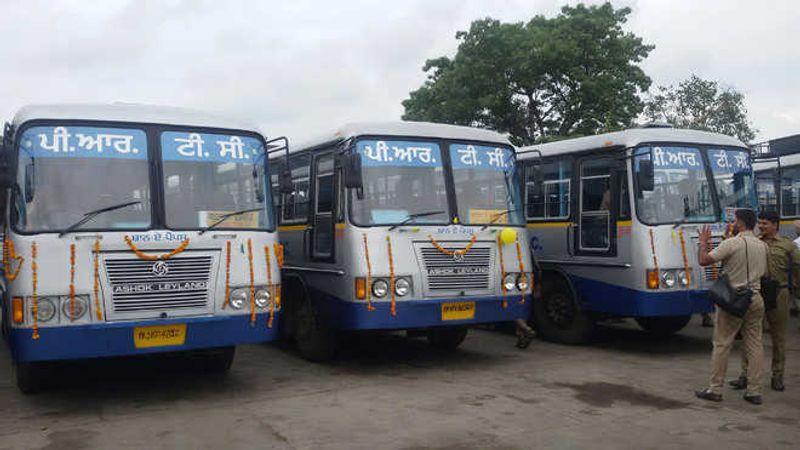
PRTC Strike Disrupts Travel Across Punjab
Punjab, a state known for its rich cultural heritage and vibrant cities, faced a major travel disruption recently as approximately 8,000 contractual employees of the Pepsu Road Transport Corporation (PRTC) and Punbus staged a strike across 27 depots in the state. The protest, which was a significant one, resulted in a halt of government-run buses, leaving many passengers stranded and chasing private buses in the rain to reach their destinations.
The strike was called by the contractual employees of PRTC and Punbus who were demanding better wages, regularization of their jobs, and an end to the alleged harassment by the management. The employees, who are the backbone of the state’s public transportation system, felt that their demands were being ignored by the government and the management, leading them to resort to this extreme measure.
The strike began early in the morning, and by 8 am, all government-run buses across the state had come to a standstill. This meant that thousands of commuters were left stranded, with no option but to seek alternative modes of transportation. Many passengers were forced to take private buses, auto-rickshaws, and taxis to reach their destinations, adding to their woes as they had to brave the rain and traffic congestion.
The strike was not limited to just the state capital, Chandigarh, but affected all major cities and towns in Punjab, including Amritsar, Ludhiana, Jalandhar, and Patiala. The disruption was widespread, with passengers facing difficulties in commuting to their workplaces, schools, and colleges.
The PRTC and Punbus are responsible for operating a vast network of buses across the state, providing an essential service to the commuters. The strike, therefore, had a significant impact on the daily lives of people, who rely heavily on public transportation to get around.
The management of PRTC and Punbus had made efforts to negotiate with the contractual employees and address their demands, but to no avail. The employees were adamant that their demands would be met, and they would not return to work until their grievances were addressed.
The strike also received support from various political parties and organizations, who condemned the management’s alleged apathy towards the employees’ demands. The parties and organizations demanded that the government take immediate action to address the demands of the contractual employees and ensure that they were treated with dignity and respect.
In the midst of the strike, the Punjab government issued a statement urging the employees to return to work and assuring them that their demands would be considered. However, the employees remained firm in their decision to continue the strike until their demands were met.
The strike finally ended after three days, with the government agreeing to meet some of the employees’ demands. The employees returned to work, and the government-run buses recommenced operations. While the strike was finally over, it left a lasting impact on the commuters, who were forced to brave the rain and traffic congestion to reach their destinations.
In conclusion, the PRTC strike was a significant event that disrupted travel across Punjab, leaving thousands of commuters stranded. The strike was a result of the contractual employees’ demands for better wages, regularization of their jobs, and an end to the alleged harassment by the management. While the strike finally ended, it highlighted the importance of addressing the grievances of public sector employees and ensuring that they are treated with dignity and respect.






